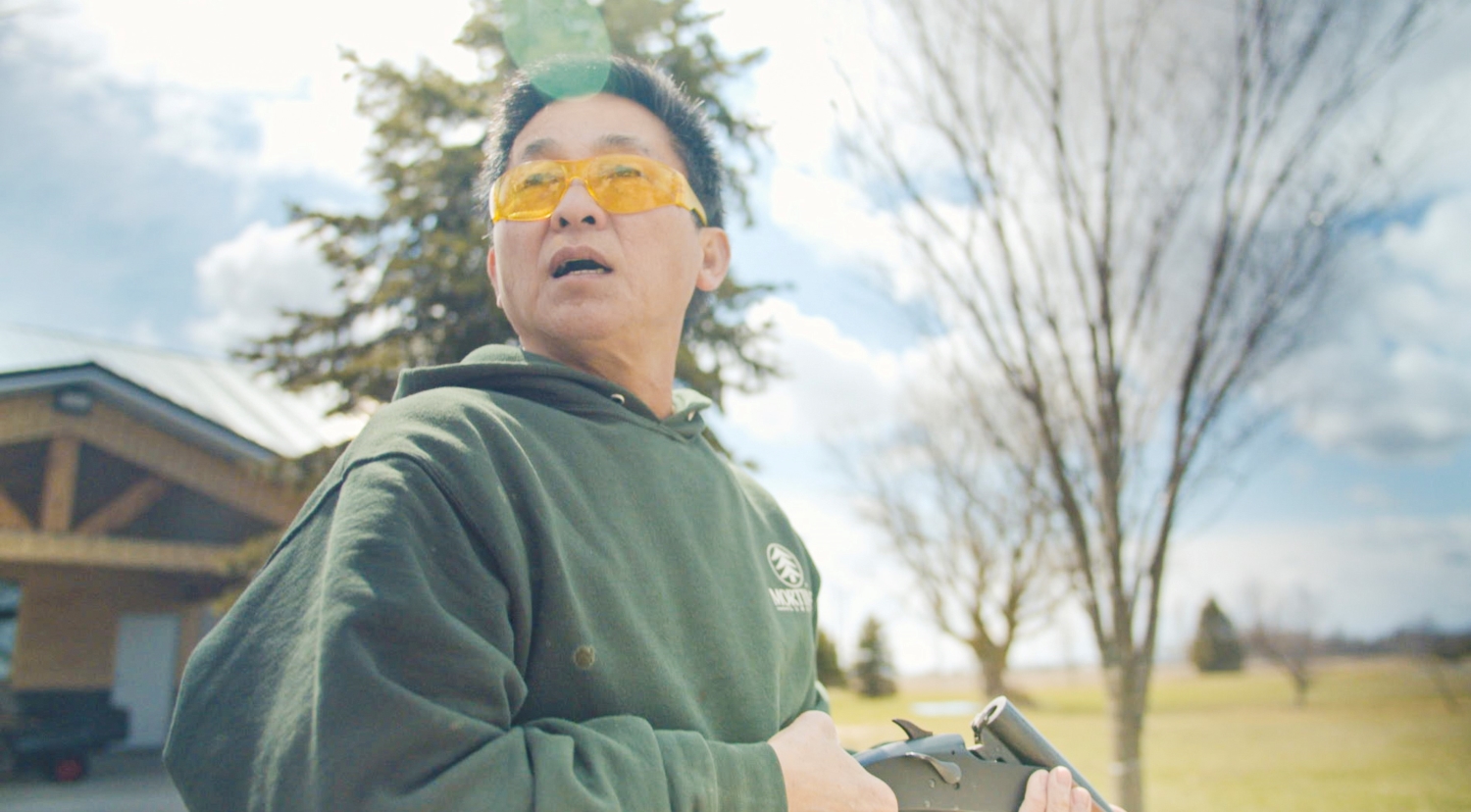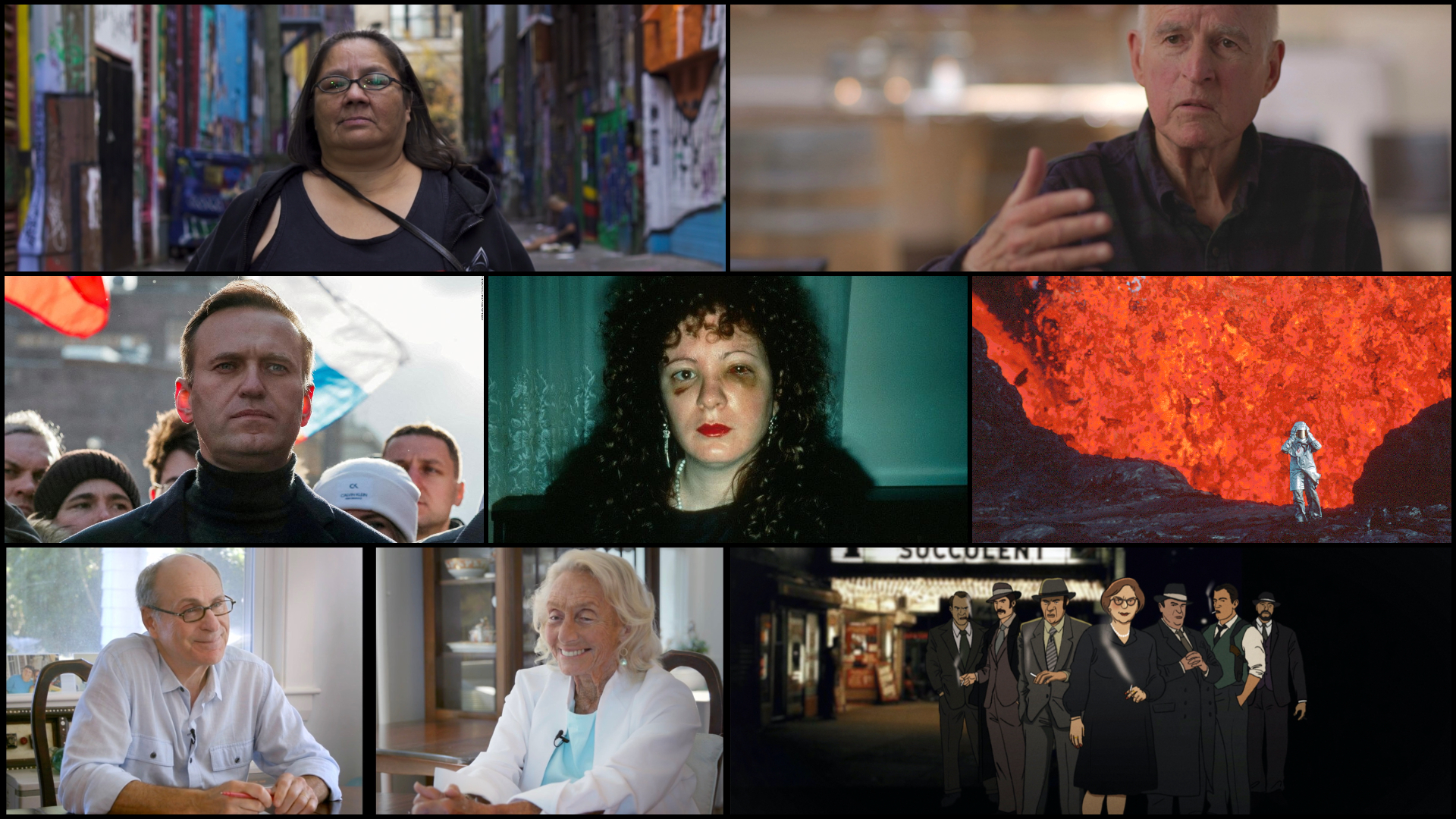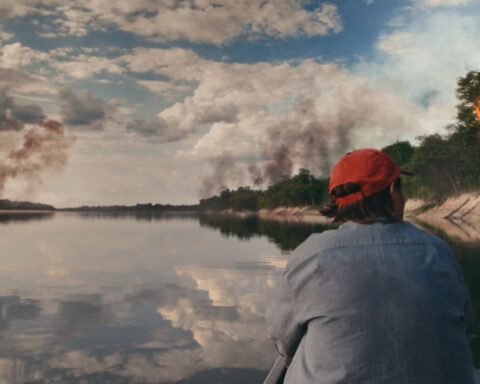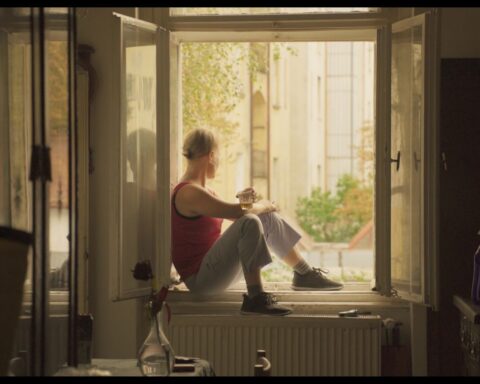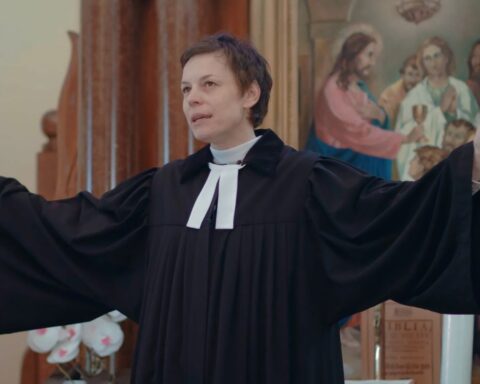Bad Axe
(USA, 94 min.)
Dir. David Siev
The impact of the pandemic is still as raw as a fresh wound. One does not have to think too hard to conjure up the memories of the fear, uncertainty, and stress felt by many when lockdowns began occurring across the globe. While it will take several years to properly unpack the collective trauma, that has done little to curb the influx of COVID-19 related documentaries playing at festivals and on streaming services. While many of these films have focused on how the pandemic came to be, David Siev’s Bad Axe presents a real-time portrait of what enduring 2020 was like for his family and their business.
Returning to his rural hometown of Bad Axe, Michigan, just as the lockdowns were commencing, Siev’s intention of crafting an ode to the community he left behind evolved into something far more complicated. For decades, the restaurant named Rachel’s had been a staple in a town that boasts two traffic lights and a Walmart. Owned by Siev’s Cambodian father Chun and his Mexican-American mother Rachel, and now run by two of his three siblings, older sister Jaclyn and youngest sister Raquel, the former donut shop had morphed into a thriving eatery, a shining example of what can be achieved in the land of opportunity. What no one expected was the way the pandemic would become the alarm clock that gave the Siev family’s American dream a rude awakening.
As the film commences, Siev documents the challenges that his family faced in March of 2020 when their restaurant was no longer allowed to offer in-person dining. With their income severely decreased and expenses rising, the family had to pivot to creating a take-out service on the fly. Adding to their frustration were the reports of a rise in anti-Asian hate crimes and the increasing number of COVID-19 related deaths. The fear of the unknown and the desire to maintain a semblance of a normal life led to many heated arguments between Chun and strong-willed Jaclyn, although she always had her parents’ and the business’ best interest in mind. In observing the reluctance that Chun displayed toward his children’s numerous requests to stay home and wear a mask, Siev taps into the intergenerational struggles that many households encountered in the early days of the pandemic and still do to this day.
The debate over masking extended well beyond Siev’s family. Since Bad Axe is known as Trump country, many considered their anti-mask stance a badge of honour. Although this led to several volatile encounters with customers, it paled in comparison to the blowback the family would receive when the murder of George Floyd in June 2020 ignited an international racial reckoning. Attending the town’s first Black Lives Matter rally, where their mere presence would put them at odds with some of their loyal customers, Siev’s siblings found themselves in heated verbal altercations with masked gun carrying men shouting “white power.”
Further fuel was poured on this racially charged fire when Siev included clips from the rally in the trailer for the documentary that he uploaded to a crowdfunding site. Although Siev envisioned his film to be a love letter to the community that provided his family with opportunities, the trailer was interpreted by many residents as an indictment of the town’s racism. The uproar it caused, which included harassment and threats from locals affiliated with neo-Nazi groups, forced Siev and his family to confront the hard truths of what it means to be a visible minority in America.
Bad Axe offers a personal glimpse into a family whose American experience is vastly different from many of their neighbours. Despite Chun and Rachel planting deep roots within the community for decades, their multicultural family will always be viewed by some as “the other” regardless of the beneficial fruits their collective tree bears.
By juxtaposing the family’s communal struggles in Bad Axe with Chun’s harrowing experience fleeing Cambodia’s “Killing Fields,” the documentary provides a cautionary reminder of the horrors that can occur if hate is allowed to flow unchallenged. Although Siev could have delved into his father’s past even further, the film offers enough insight into the generational scars that trigger Chun’s tense interaction with family members. Hearing Chun recount the horrors he witnessed also provides context to his love of guns and his determination to keep his family safe at all costs.
While violence permeated his father’s past, Bad Axe is ultimately a tale of love and perseverance. Some of the documentary’s most compelling moments come when Siev’s family is navigating the everyday challenges of life in a pandemic. Whether it is Jaclyn wrestling with how to keep the business afloat with her husband’s desires to start a family, or the pressure Raquel feels to figure out her future as her college graduation approaches, the familial plights are always relatable. Siev provides such a good overview of his family and their predicament, that one cannot help but get a bit misty seeing his mom tear up at the simple joy being able to reopen the restaurant to customers.
It is through Siev’s loving look at his family that one gets a sense of hope for the future. As one long time conservatively raised employee at Rachel’s notes in the film, she had no experience with Asian Americans prior to befriending the family. However, her bond with the Sievs, where she now feels like part of the family, completely changed her view on many of the ideologies she was taught since her youth. Although the Sievs are not out to singlehandedly change the world, Bad Axe is a heartfelt and intimate examination of family and perseverance in times of great adversity.
Bad Axe screens at DOC NYC and Toronto’s Reel Asian.




